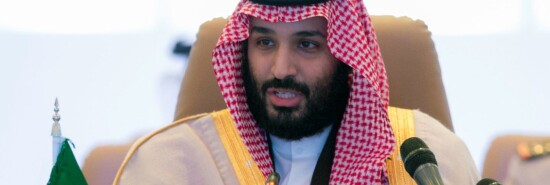
A new foundation for the US-Saudi partnership
Saeed Ghasseminejad
Video Embed
Once a bastion of Western influence in the Persian Gulf, Saudi Arabia may be shifting its allegiance toward the East. Tired of Washington’s wavering support, the Saudis are warming to China. Still, it is not clear Beijing can replace Washington.
For half a century, the special relationship between Washington and Riyadh has rested on an arrangement whereby the United States protects Saudi Arabia from foreign threats while the Saudis protect the Americans from instability in world oil markets. However, as the U.S. inches closer to energy independence, its reliance on Saudi oil has diminished. Their original arrangement now seems less relevant. Yet Washington still has substantial influence over Riyadh that it can leverage to keep the kingdom out of China’s orbit.
FAMILIES OF SAUDI PRISONERS MARKED FOR EXECUTION ASK BIDEN ADMINISTRATION FOR HELP
While the U.S. now produces more oil than ever, China’s voracious appetite for energy resources has only grown, and the Saudis have been more than willing to oblige. A Chinese proverb advises, “When you drink water, remember the source.” This also applies to oil, and Beijing is eager to show that it has greater influence over that source than Washington.
While becoming the largest importer of Saudi crude, China’s presence in the Saudi economy has also grown rapidly. It has become a major supplier of goods, from textiles and consumer products to heavy machinery. In 2022, trade in goods between the two countries reached $116 billion, $78 billion of which was Saudi’s exports to China. Meanwhile, the trade in goods between the U.S. and Saudi Arabia stood at $35 billion in 2022.
But the roots of Saudi realignment run deeper than mere economics. Washington has failed to respond effectively to the threats faced by its traditional allies in the Persian Gulf. Above all, Washington’s inability or unwillingness to react with sufficient vigor to Tehran’s provocations has left the Saudis feeling vulnerable and abandoned. Tehran’s nuclear ambitions, increasingly belligerent stance toward its Persian Gulf neighbors, and developing partnership with China have only intensified Riyadh’s concerns. In the absence of U.S. protection, Saudi Arabia has chosen to test whether China is willing to contain Iran’s Islamic Revolutionary Guard Corps and Tehran’s proxies and partners using its growing influence in Tehran.
However, it is not clear whether China even wants to or can do this.
Riyadh hopes that Beijing prefers stability in the Persian Gulf to Iranian domination. This may well be the case. China’s critical interests in the region are to secure the flow of energy, protect its growing investment portfolio, and prevent Washington from using its naval assets in the Persian Gulf to block oil shipments to China in the event of war over Taiwan.
As George F. Kennan, the architect of America’s Cold War strategy, once observed, “The main element of any United States policy toward the Soviet Union must be that of long-term, patient but firm and vigilant containment.” Today, Washington faces a similar challenge in its dealings with China. Thus, it should not give up on its partnership with the Saudis, especially when it still has great influence over Riyadh.
The crown jewels of Washington’s leverage are the years of Saudi dependence on U.S. military hardware, software, and training. A break with Washington would immediately render Riyadh far less secure. When it comes to intelligence, Riyadh has also relied on Washington’s assistance (though, when it comes to counterterrorism against groups like al Qaeda and ISIS, the Saudis have been critical). Furthermore, a lot of Saudi money is tied up in American firms. To reshape its economy and move beyond oil exports, the Saudis need American technology and innovation. Add to this Washington’s position as the hub of international financial networks, as well as its soft power and diplomatic heft.
America’s special relationship with Saudi Arabia may be in a coma, but it does not mean Washington cannot redefine its relationship with the Saudis to keep Riyadh in its orbit. Beijing simply cannot offer what Washington does, even if it can sometimes embarrass the U.S. with diplomatic moves like brokering a Saudi-Iranian detente. In the wake of that setback, the right move for Washington is to modernize its relationship with Riyadh, not write it off as a Chinese vassal.
CLICK HERE TO READ MORE FROM THE WASHINGTON EXAMINER
Dr. Saeed Ghasseminejad is a senior Iran and financial economics adviser at the Foundation for Defense of Democracies, specializing in Iran’s economy and financial markets, sanctions, and illicit finance. Follow him on Twitter @SGhasseminejad. FDD is a Washington, DC-based, non-partisan research institute focusing on national security and foreign policy.
